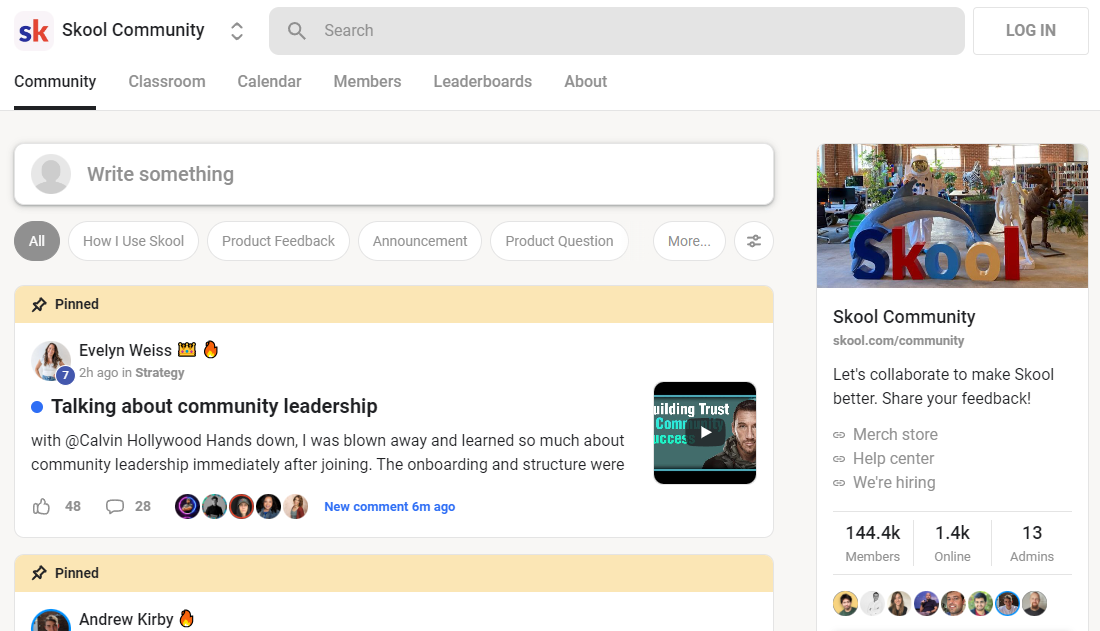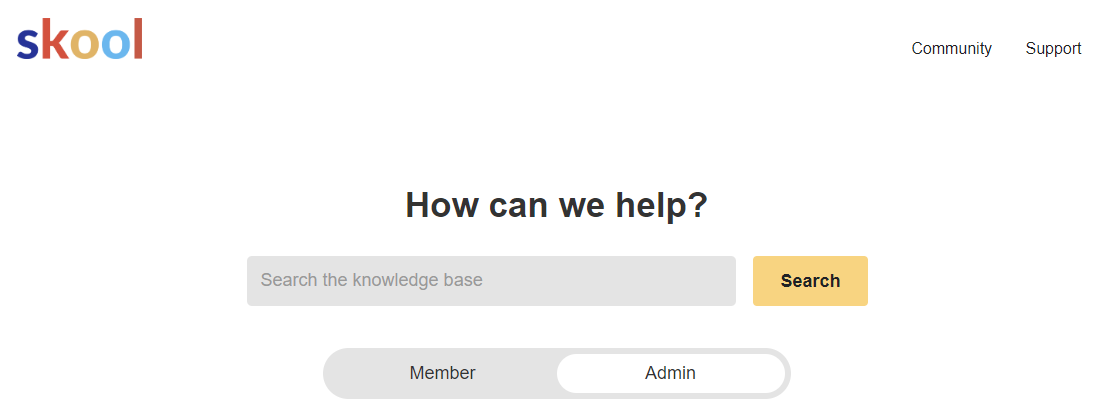Skool provides best-in-class gamification attributes that boost engagement. As an example, members can make degrees based upon their participation, which open training course web content and various other rewards that better inspire them.
Formerly, designers had to utilize various devices for hosting training courses, building communities and managing email advertising and marketing. This created a disjointed experience for both creators and their target markets.
Developing Courses
Skool has a basic, straightforward interface and focuses on area building and course holding over other features. It allows developers to develop a vivid neighborhood for their programs and coaching programs by connecting them with the ideal audience. This likewise helps them keep an eye on the health and wellness of their web content business with the help of a simple dashboard.

To begin, an individual can register for a cost-free 14-day test of Skool. After that, they can pay $99 a month for the platform to host a solitary area. There are no other pricing choices readily available for the moment. Skool also refines settlement and pays makers weekly, but it does charge a 2.9% transaction cost.
Among the unique facets of Skool is that it can be utilized to create interactive training courses. These can consist of online webinars, group tasks and real-time conversations. These types of training courses urge participation and increase course conclusion prices. In addition, Skool’s gamification functions help to motivate area participation. For example, members can gain points and unlock training course content when they reach specific degrees in the neighborhood.
Customers can likewise make use of the social feed on Skool to publish updates and communicate with others in the neighborhood. The feed looks like a Facebook group, but with a more regulated way of posting. This aids to prevent the kind of spam and misuse that happens on various other social platforms.
Managing Communities
Skool is a really easy platform to make use of, for both participants and admins. Its simpleness is among its major selling factors– when a person joins your community they will not be faced with a number of choices or attributes that can hinder their experience and puzzle them.
The platform begins as a private group by default, however you can conveniently transform this to open up your neighborhood to any person that you wish to belong to it. Once you’ve done this you’ll see a social feed like you would on Facebook Groups or WhatsApp (yet without all the fraud stuff and swearing).
You can also include a classroom tab to your neighborhood that you can utilize to share academic material with your participants. This function is particularly valuable for communities that are focused on knowing or expert development as it helps to produce an instructional structure and makes it simple for participants to track their progress. On top of that, the system has gamification aspects that enable participants to gain points by liking articles or remarks. When they reach a certain degree they can unlock sources, such as courses, further driving engagement.
The various other great thing is that Skool has a mobile application, similar to Mighty Networks or Slack, so members can stay on par with your community and engage on the go. This is a terrific way to encourage and engage your members and to help them get support from each other when they require it, as opposed to simply turning to you for solutions.
Skool Adri Kastel
Skool focuses on gamification, enabling users to make points and badges for their contributions. This encourages members to involve with the community and contribute to conversations. Subsequently, this helps them level up and unlock advantages like video clips and various other web content. Admins can additionally establish training courses to be opened at specific degrees to more drive engagement.

The Skool interface is very clean and intuitive. Its main features include the Community tab, which looks similar to a Facebook team feed. Below, users can upload remarks and text as well as upload pictures, web links and videos. Members can also see each others profiles and get in touch with them. Furthermore, individuals can produce private teams in the community to discuss particular topics.
One more feature of Skool is the Classroom tab, which is similar to a YouTube livestream or Zoom meeting. Utilizing this, administrators can organize trainings and webinars for their pupils. They can additionally add occasions in the calendar to stay updated on upcoming occasions and Skool Adri Kastel.
However, some elements of Skool can make use of improvement. For instance, the system isn’t adaptable when it comes to money making as individuals can not use numerous rates rates for their courses and neighborhood subscriptions. Furthermore, the tool does not have an e-mail advertising and marketing attribute, which may be a deal breaker for some course developers. It additionally does not have native video holding, meaning that users need to make use of outside platforms like YouTube, Loom and Vimeo for their video clips.
Adding Content
The procedure for adding material and interacting with participants on Skool is very easy and uncomplicated. Admins can create posts with text, GIFs, video clips and surveys. They can also add event schedules to notify neighborhood participants of upcoming group Zoom calls or live streams. Furthermore, they can utilize Skool’s e-mail broadcast attribute to send out a message to the entire area with a solitary click. This gets rid of the need for marking and list division, which can be difficult.
In addition, Skool’s gamification attributes can increase involvement and customer retention. It motivates participants to communicate with the content often by compensating them with various advantages. These include unlocking training course content, gaining points and gaining a place on neighborhood leaderboards.
While Skool provides a host of useful features for producing and providing on-line courses, it’s not for every person. The system is best for trains, experts and various other information business owners. Nonetheless, the price tag can be an obstacle for some people wanting to monetize their online content.
Additionally, the lack of basic tiers and a short free trial may be a deterrent for several. Furthermore, the platform’s laser-focus on eLearning can make it less preferable for people who want to offer various other electronic items. Nevertheless, regardless of these disadvantages, Skool Adri Kastel is still a feasible alternative for anyone seeking to produce and generate income from on-line programs.